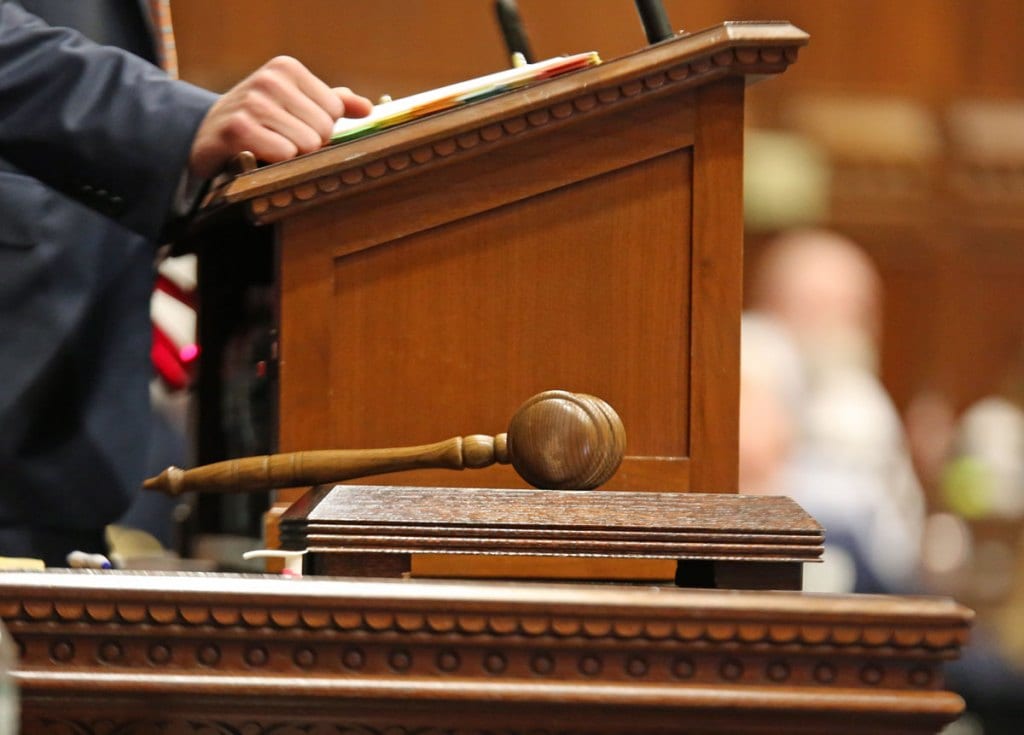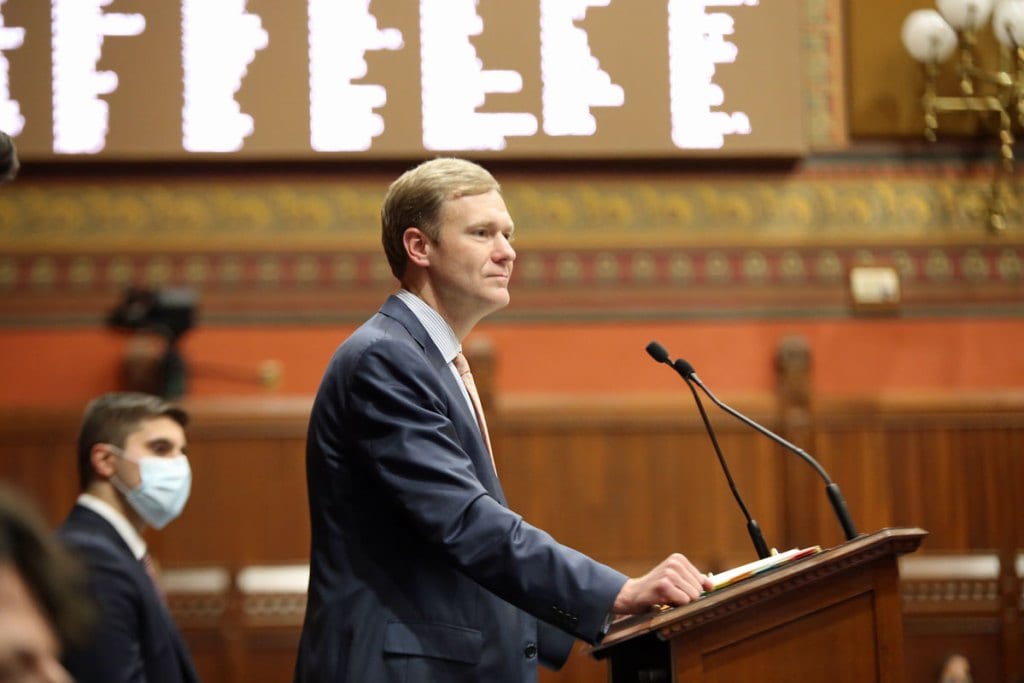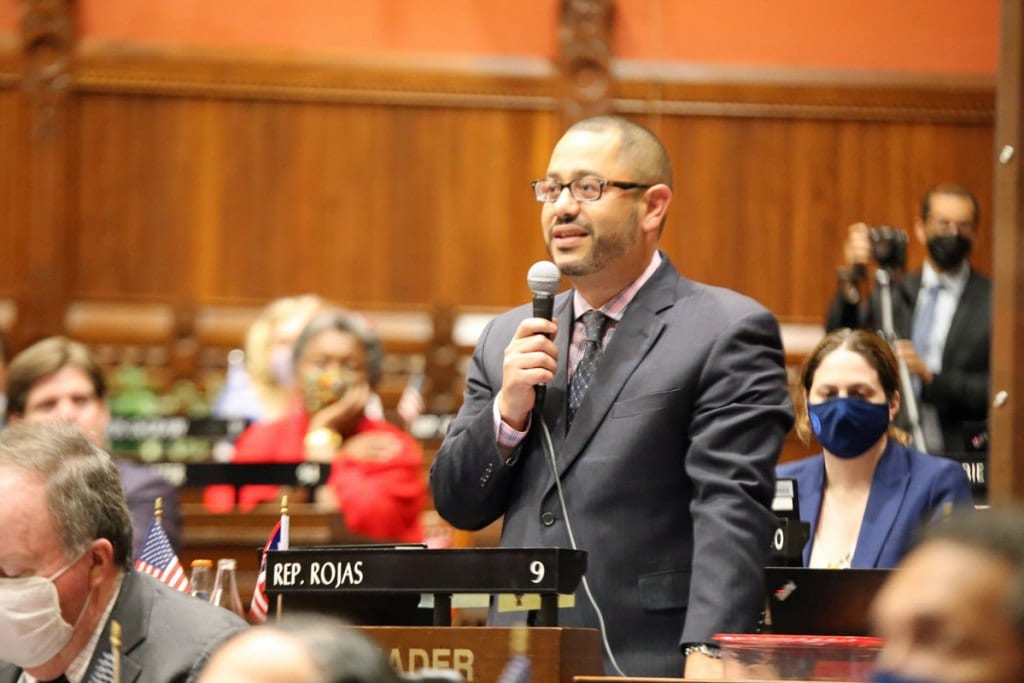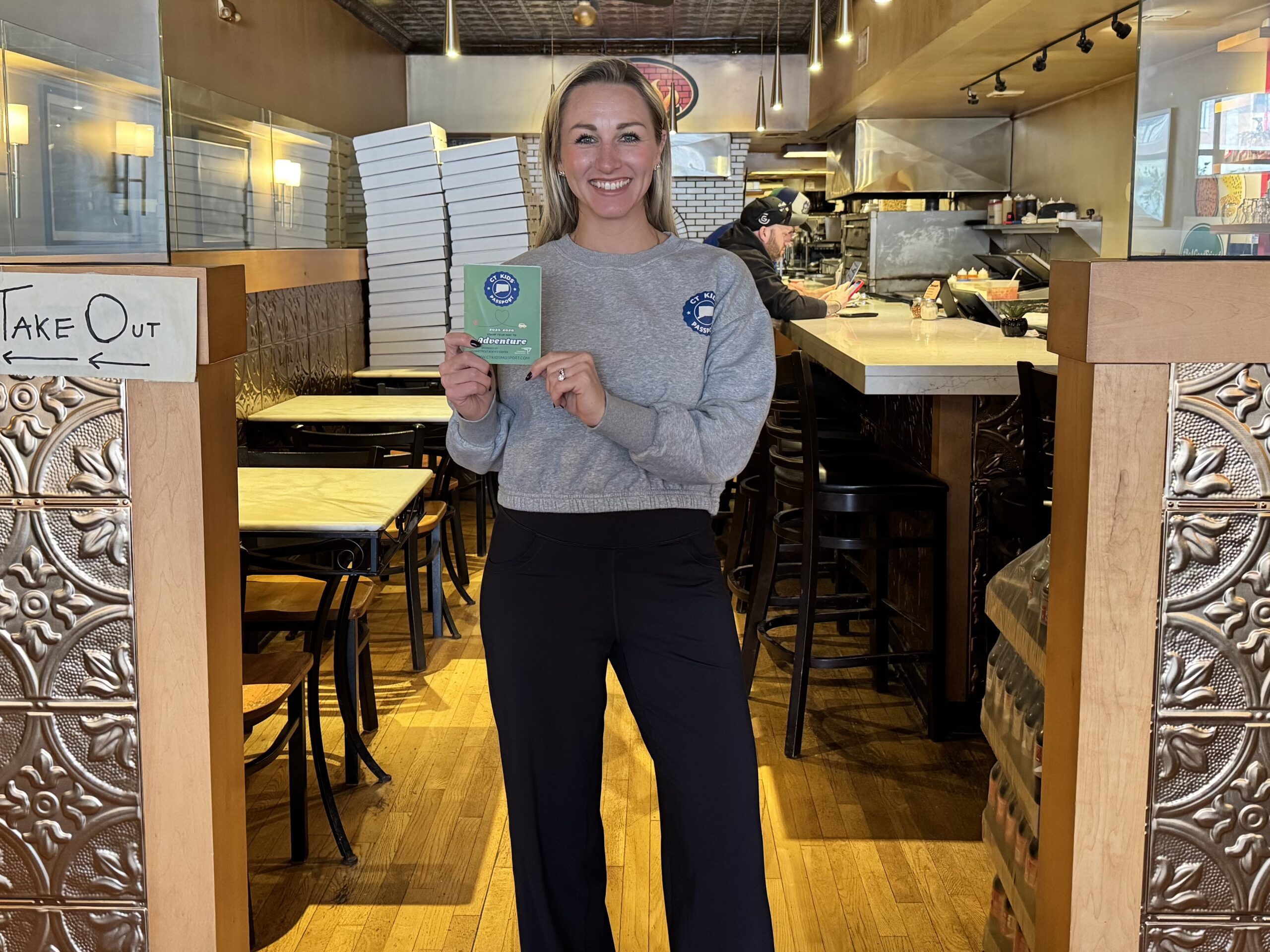The 2021 Session Ends With A Whimper

Audio By Carbonatix

The legislative session was required to end by midnight Wednesday. Photo credit: Christine Stuart (courtesy of CTNewsJunkie.com)
A special session is already scheduled for next week to pass the implementer bill for the two-year budget and the House speaker has indicated that cannabis legalization will also be considered.
By Christine Stuart and Hugh McQuaid, CTNewsJunkie.com
Nothing about the 2021 legislative session was normal. The state Capitol has been closed since March 2020, leaving the public and the lobbyists without access to the building and lawmakers to their own devices.
This year’s session saw a historic expansion of gambling in Connecticut, allowing for the first time sports and online betting. And both chambers passed a bipartisan two-year budget in the last 24 hours of the session. But when lawmakers gavelled out of the session at midnight Wednesday there seemed to be a lot left undone.
In a break from tradition, Gov. Ned Lamont and legislative leaders did not schedule a midnight address to a joint session of the legislature.
Leaders had already scheduled a special session for next Wednesday to pass implementer language for the two-year budget and House Speaker Matt Ritter said the session would include a cannabis legalization bill passed by the Senate and left unresolved in the House.
Ritter said the threat of a long debate from Republicans prevented him from raising the high-profile bill in the last days of the session. He took that delay as a green light to raise any number of other public policy proposals when the legislature reconvenes.

House Speaker Matt Ritter. Photo credit: Christine Stuart (courtesy of CTNewsJunkie.com)
“Because we were not allowed to do the business we needed to do today, every item, to me, is open for consideration with the special session,” Ritter said.
Republicans rejected the characterization that they had prevented the majority Democrats from accomplishing their priorities. House Minority Leader Vincent Candelora said Democrats have controlled the calendar. He said it was “absurd” to blame Republicans.
“They were the ones that chose to make pizza the state food. They put that on the board before they put proposals like legalizing marijuana,” Candelora said. “To now suggest that they need even more time to bring out even more bills that do even more bad things to the state of Connecticut should alarm everybody.”
Senate President Martin Looney said the General Assembly functioned under extraordinary constraints this year. But he said the session ended with the passage of a budget package that reflected a degree of unanimity on the spending priorities of lawmakers that was “probably unprecedented in recent history.”
“At the beginning we were heading into a situation that was fraught with unknowns and fraught with dangers, but yet, I think we had a highly successful session with significant legislation on so many issues,” Looney said.
Lawmakers also had to keep their distance from one another, making a building that runs on relationships difficult to navigate. The tensions of that were seen a few hours before the session ended when Ritter called for greater understanding of differences.
“With COVID, the goal of getting some people together at the beginning of the session went away,” Ritter said. “And as we’ve seen in our society over the last year or so, COVID has changed our lives in many ways.”
He said one way that may not have been positive is the inability to gather and meet with people.
“To be in the same space. To get to understand each other in different situations,” Ritter said. “A lot of people were forced to come into this chamber without knowing anybody. No ability to serve on committees together. No ability to have casual conversations in the cafeteria and no ability to get to know each other.”
That played out in tough floor debates on difficult subjects like how to regulate solitary confinement for inmates.
Conversations about how to reopen the building and perhaps engage in more person-to-person communication will begin Thursday.
“Thanks to science we’ll have a normal session next year,” Ritter said.
This year not only have lawmakers had difficulty communicating, but the public has been unable to address their lawmakers in person.

House Majority Leader Jason Rojas. Photo credit: Christine Stuart (courtesy of CTNewsJunkie.com)
“It is always important to ensure the public has access to this building,” House Majority Leader Jason Rojas said.
Rojas says the notion that the public hasn’t had access to lawmakers is overstated.
“We passed a lot of really important legislation. Issues that have been around for a very long time,” he said.
He says many of the virtual public hearings went on for 24 hours, which is not something that would have happened if they were having the hearings in person.
“But the challenging nature of this session was just different. I don’t know if it was any less challenging than last year, probably won’t be any less challenging than next session,” Rojas said.
Republicans had a slightly different take.
“I think with the closed building and with the way this session has gone, there’s been some bipartisanship and there’s actually been some deep divides on particular pieces of legislation,” Candelora said. “I think it was sort of overshadowed by some of the activity that we saw that was inherent in this building being closed. I sort of liken it to the last day of school when there’s a substitute teacher.”
There were also some additional extracurricular activities, like drinking, that drew criticism this year.
Ritter reprimanded his members three times for public drinking, which drew the attention of others outside the building including Jimmy Kimmel.
Although drinking is not uncommon at the state Capitol during the waning days of a legislative session, Ritter said this year felt different, in part due to COVID-19 precautions. The building is more empty than is typical during the last week of session. He defended the decision to keep the building closed, saying there have been no COVID cases.
“But when you have very few people around and you have a lot of idle time and the ability to vote from your office, yeah, that probably has contributed to it a little bit,” Ritter said. “I think that’s fair to say.”
Several pieces of legislation had to be amended by the first chamber they passed in order to gain the support of both chambers. The juggling act was tiresome for lawmakers who were considering the same bill twice on a handful of occasions.
Republished with permission from CTNewsJunkie.com, all rights reserved.
Like what you see here? Click here to subscribe to We-Ha’s newsletter so you’ll always be in the know about what’s happening in West Hartford! Click the blue button below to become a supporter of We-Ha.com and our efforts to continue producing quality journalism.



